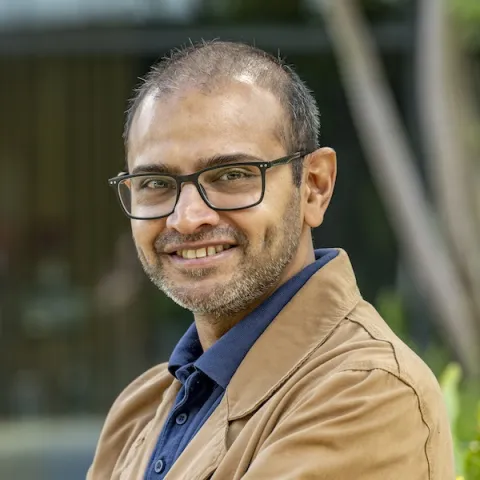About the project
In this exciting experimental project, we aim to explore the feasibility of model-based prediction and control of coordinated swimming of multiple flapping foils in a water facility. We aim to use simple predictive models coupled with sensors to provide robust predictions of the performance envelope for downstream foils. Then, these predictions should be integrated into the flapping foil setup where the goal is to optimise the performance of the flapping foils under extreme variations of the oncoming flow.
In recent years, aerial and underwater autonomous vehicles have seen significant growth. This sector is projected to be worth over £600 billion over the next 20 years. As the number of autonomous systems grows, there is a need to develop new coordinated ways of flying and swimming.
Our previous work inspired by fish schooling showed that a careful arrangement of foils together with coordinated kinematics can lead to a significant increase in performance. However, it is unclear how such arrangements and coordination can take place “on the fly” as we lack the sensors or physical models that can provide reliable predictions of performance.
We're also looking to ensure the vehicles are able to manoeuvre in the presence of external gusts and perturbations caused by upstream vehicles and obstacles. In fact, it is possible to harness the energy that is present in the incoming flow and further improve the performance.
We aim to build a diverse and inclusive team to tackle challenging problems where we develop new skills and expertise in our team members. Therefore, the project will be open-ended, and the details will be tailored to suit you.
You'll have the opportunity to:
- use an in-house bio-inspired distributed actuation system and combine that with a newly developed sensing system that can help predict the state of the flow
- use the resulting data together with machine learning tools and develop new prediction and control methods that can exploit the available information
- work alongside other team members (PhD students and postdoctoral researchers) with different backgrounds and experience
- be trained in using diagnostics and advanced data-analysis methods that will enable you to pursue a career in academia or industry
- travel to international conferences to present your work and develop new collaborations with research groups around the world
Further information on the type of projects carried out in our lab as well as information on current lab members can be found on our website.

